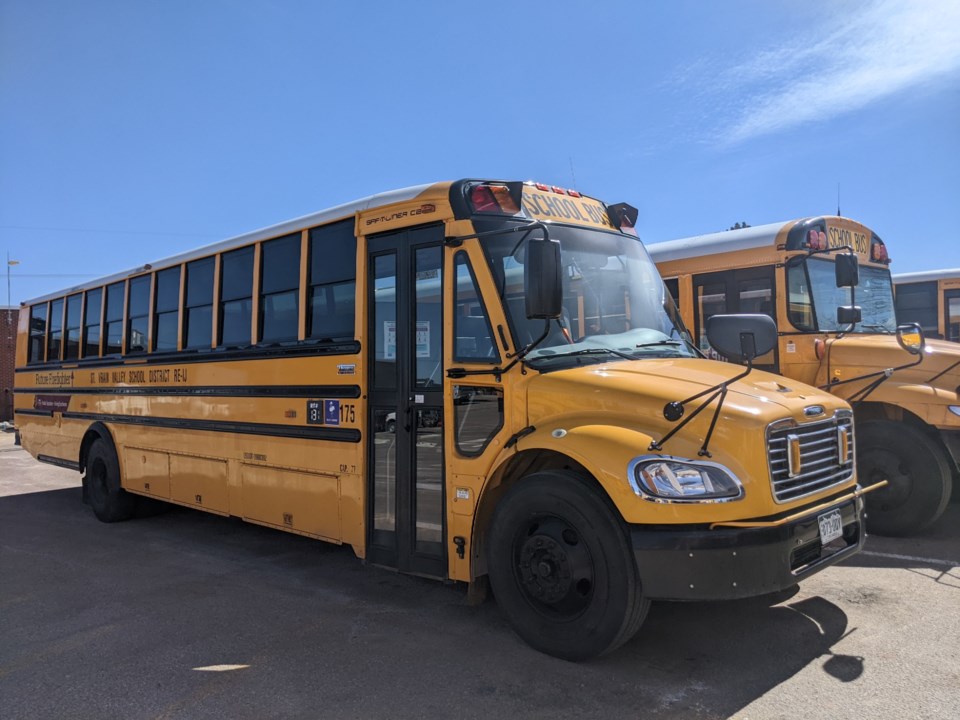Colorado’s school transportation systems lack adequate oversight, according to a new report released Monday by the Common Sense Institute.
Operating expenses have increased over the past decade in many districts, but fewer students are eligible to use the systems, the non-partisan organization’s study shows.
“At the same time, miles driven transporting students to and from schools has decreased by 21% over that same 10-year period,” the report states.
Common Sense Institute Fellow Jason Gaulden said school district data should be made available to the public in an effort to determine whether money is being spent efficiently and strategically.
“Costs are going up, while services are going down,” Gaulden said. “And I’m sure your natural next question is, why? And that is the other interesting thing — we don’t know. While the state takes an interest in education transportation funded to the tune of $62 million, it doesn’t take an interest in collecting the data that would allow us to evaluate its efficiency.”
All the data required for transportation policymaking would have to come from school districts, he said.
“There’s no obligation for them to report it up to the state,” Gaulden explained. “Without that information, how can policymakers evaluate what’s good remedy, what’s bad — expand what’s working?”
The Leader reached out to two local school districts — St. Vrain Valley Schools and Boulder Valley School District — for feedback on the report, but St. Vrain declined comment and Boulder Valley did not respond by deadline.
St. Vrain’s total operating transportation expenditure for 2022 was $9,958,336 for 10,282 students who are eligible to ride the system, according to the report. Around two out of three St. Vrain students aren’t eligible.
“Transportation is available for elementary students living 1-1/2 miles or more from their school of attendance, and for secondary students living 2-1/2 miles or more from their school of attendance,” the district’s website states.
Boulder Valley School District’s total operating expenditure for 2022 was $16,123,216 for 7,979 eligible students, according to the report. Like St. Vrain, the majority of students aren’t eligible to use the transportation system — 29,011 were enrolled in the Boulder Valley School District in 2022.
Historical data on bus ridership was not immediately available for either district, and while researchers with the institute gathered statewide data for its report, they did not request specific ridership data from the two local districts. Instead, the report highlighted discrepancies in Denver’s transportation system.
“Denver’s operating expenses have doubled while miles have decreased by 21% and eligibility has declined by 9%,” Gaulden said. “Why is this the case? The answer has implications on resource allocation, student access and equity, transparency and accountability, and good governance. Until we have better data though, we cannot answer important questions like this.”
The number of students across the state who are eligible for their school’s transportation system has dropped by 8% since 2012, the study shows.
The Colorado Department of Education should require school districts to provide data on ridership, transportation eligibility standards, costs for each transportation mode and staffing levels, the report states.
The department facilitated a working group last year that reviewed the state’s process for transportation reimbursements to districts. The group made several recommendations, including the collection of more data from districts.
“CDE is supportive of process improvement efforts that streamline processes, reduce burdens on school districts, and improve outcomes and safety,” said Jeremy Meyer, Colorado Department of Education spokesperson.
The working group “will discuss internally if and how to move the proposal forward,” according to a meeting summary provided by the department.
Colorado school districts spent $290 million on transportation in 2022 — at an average cost of $917 per eligible student, according to the Common Sense Institute study.



